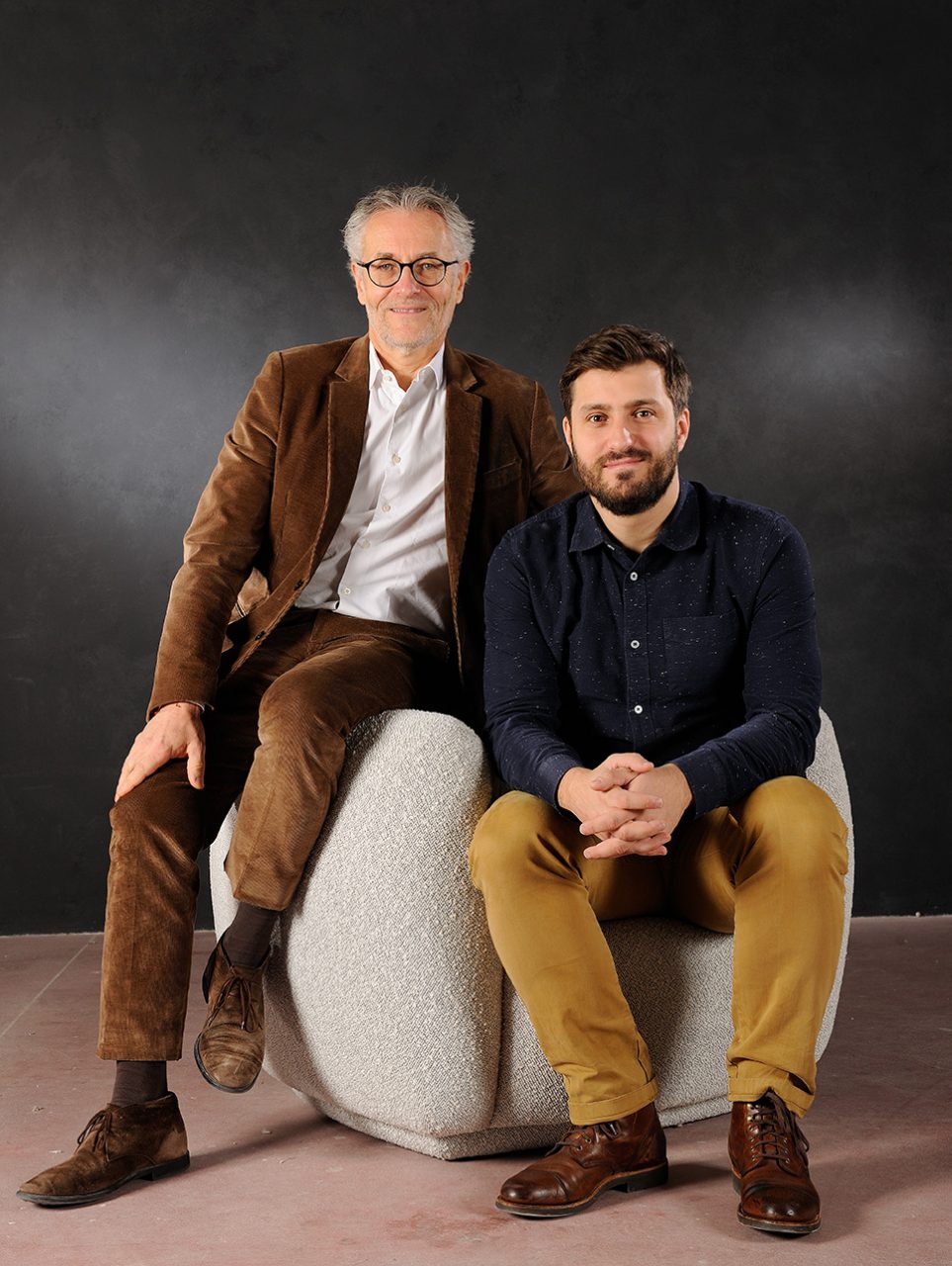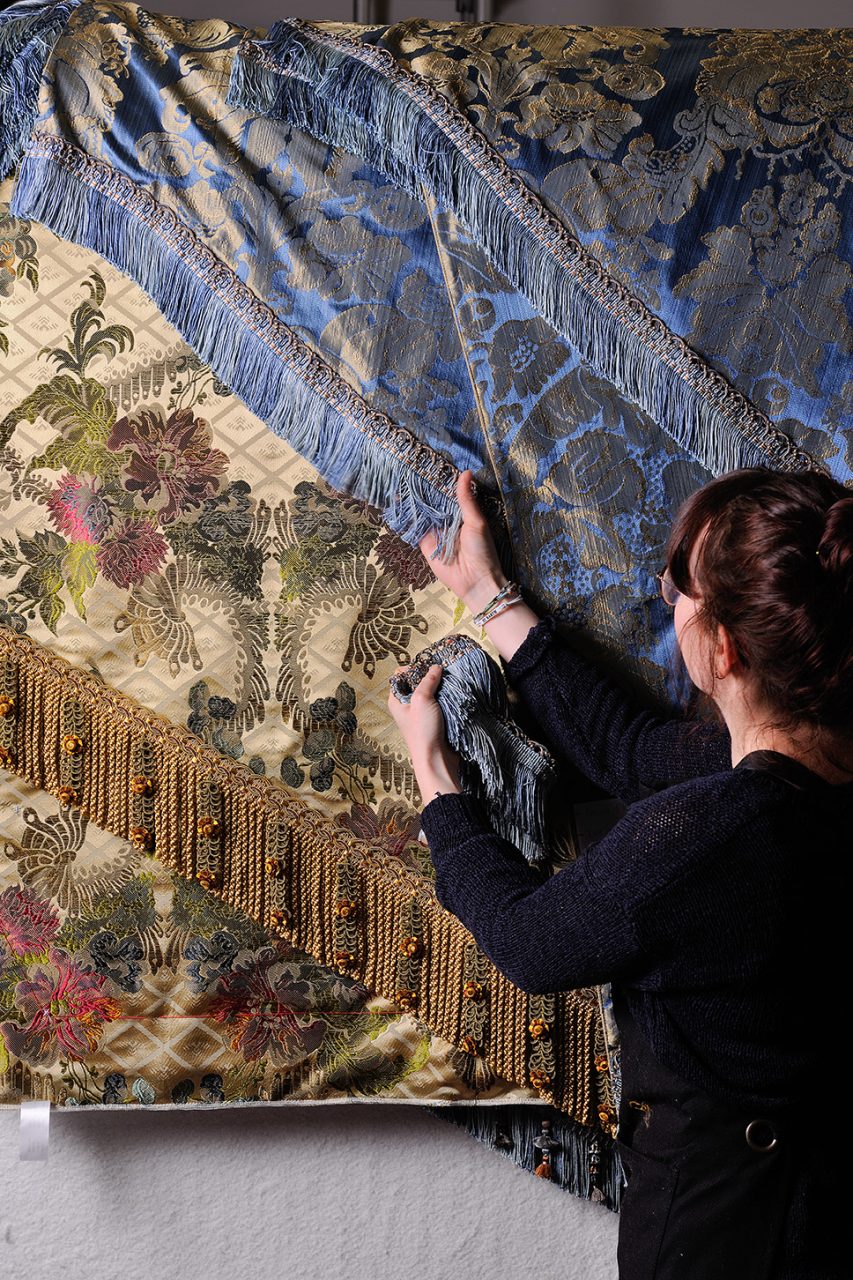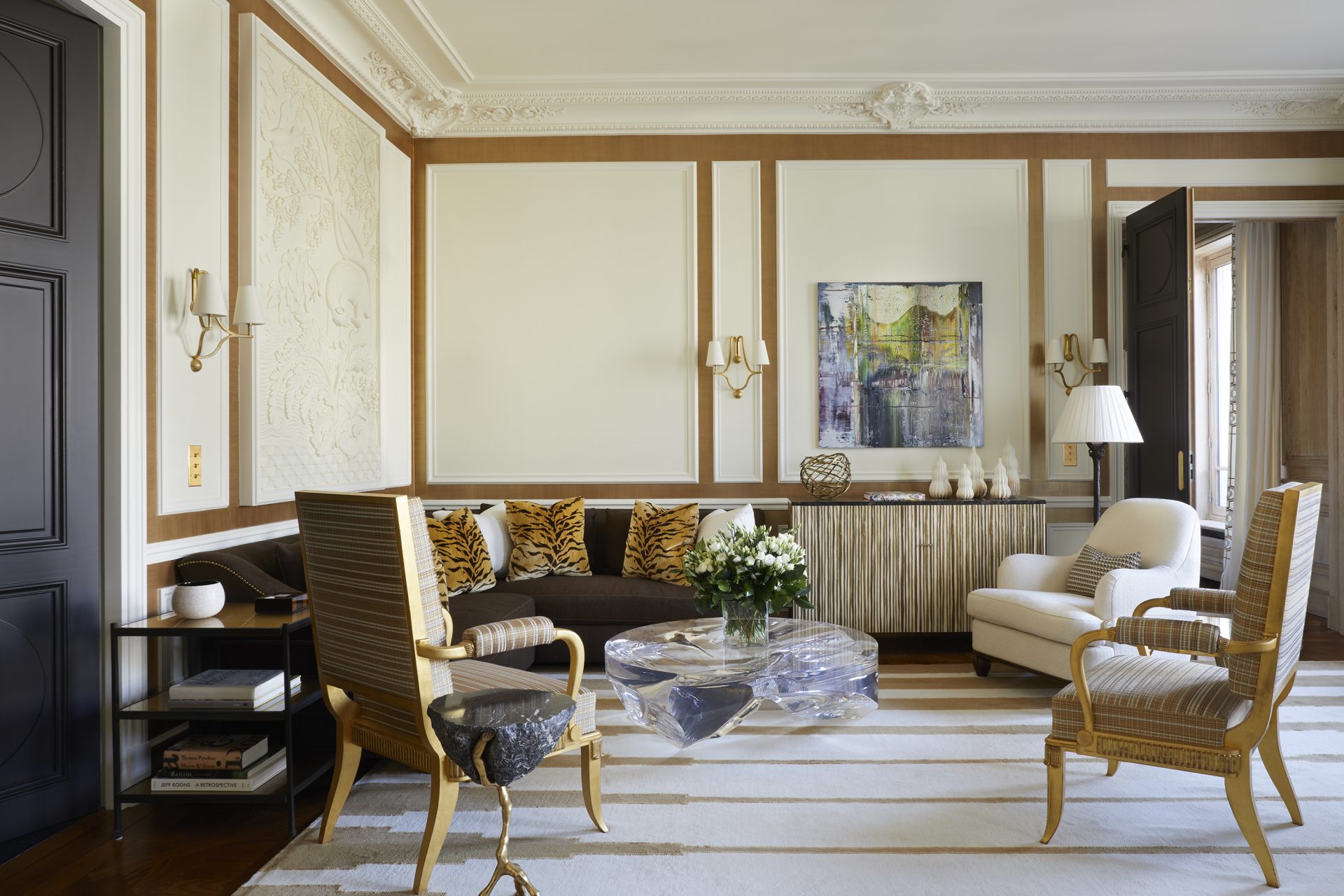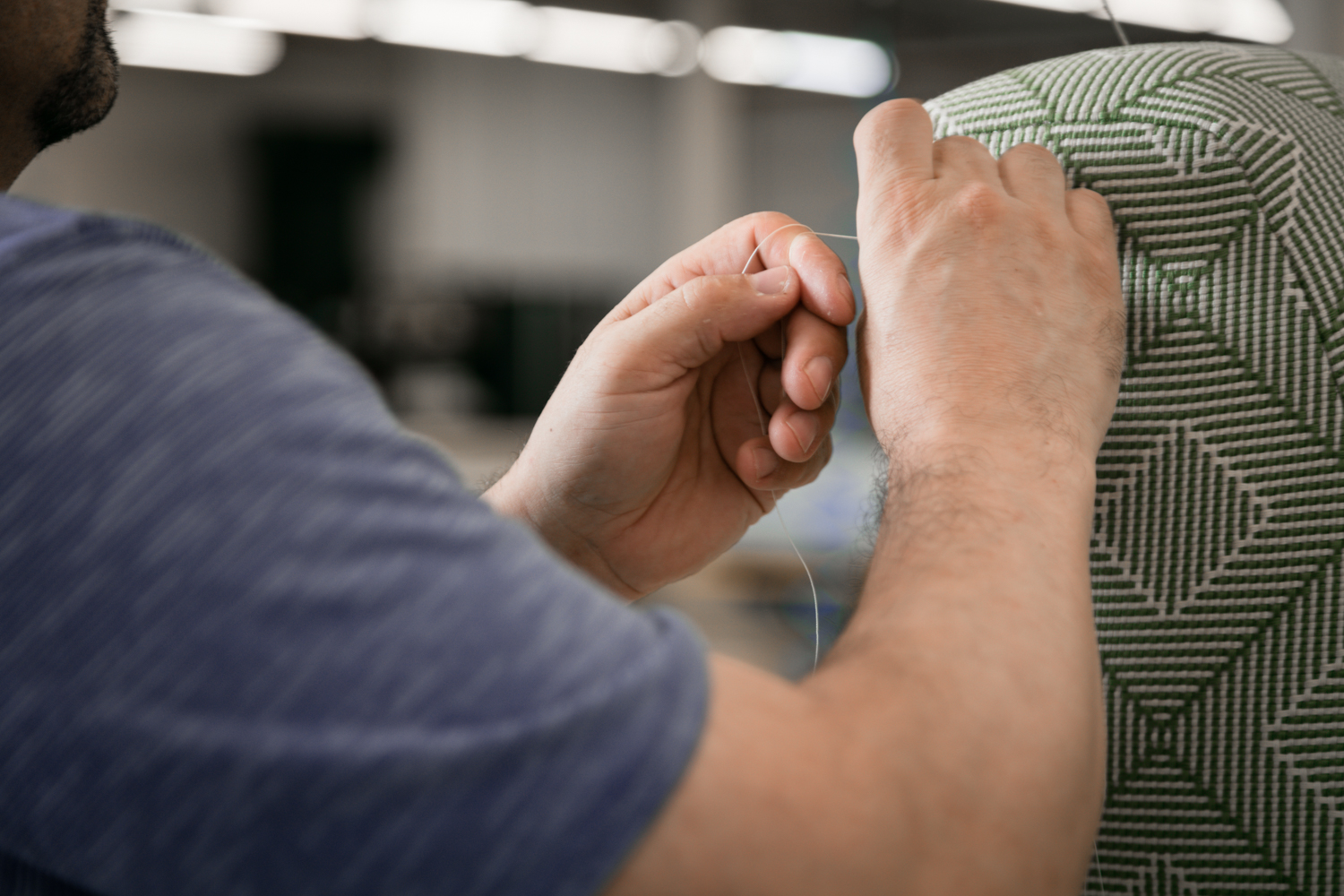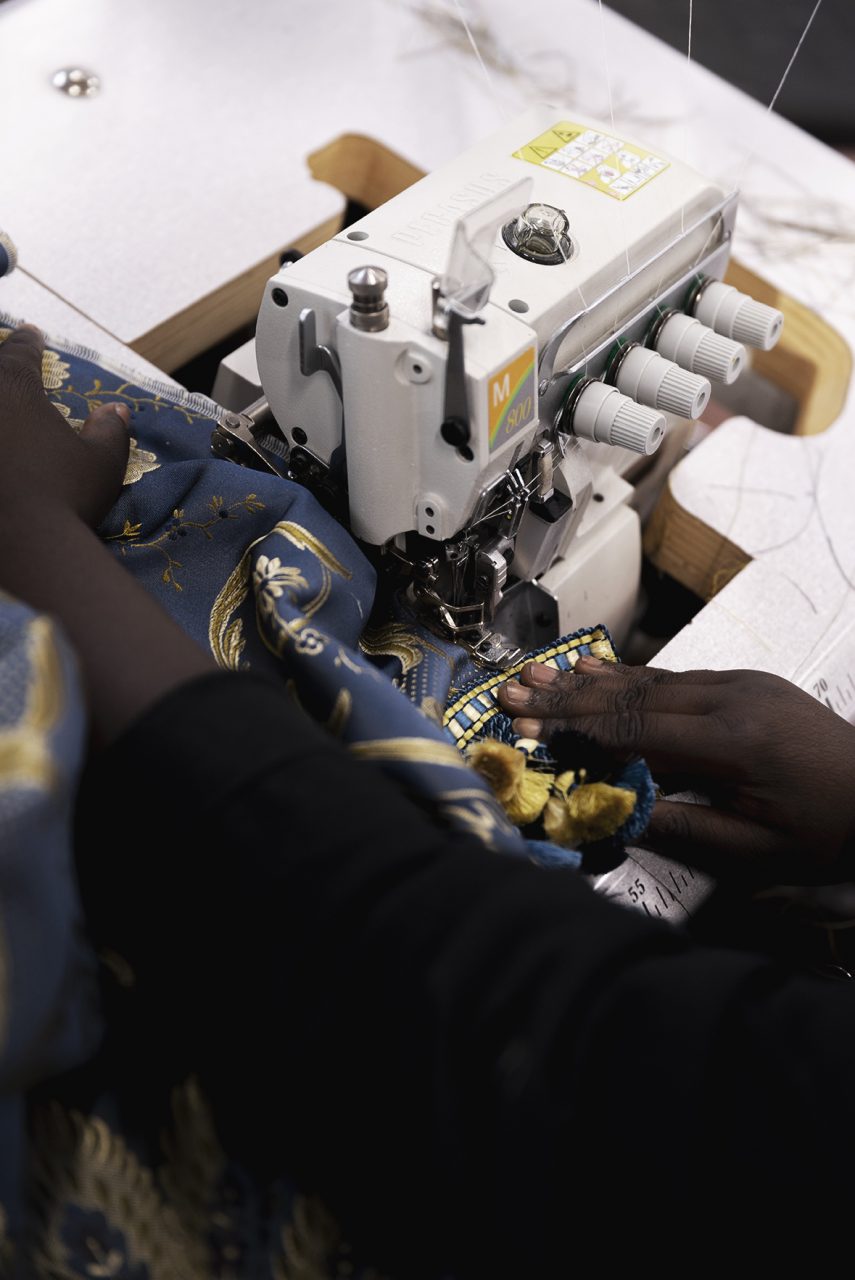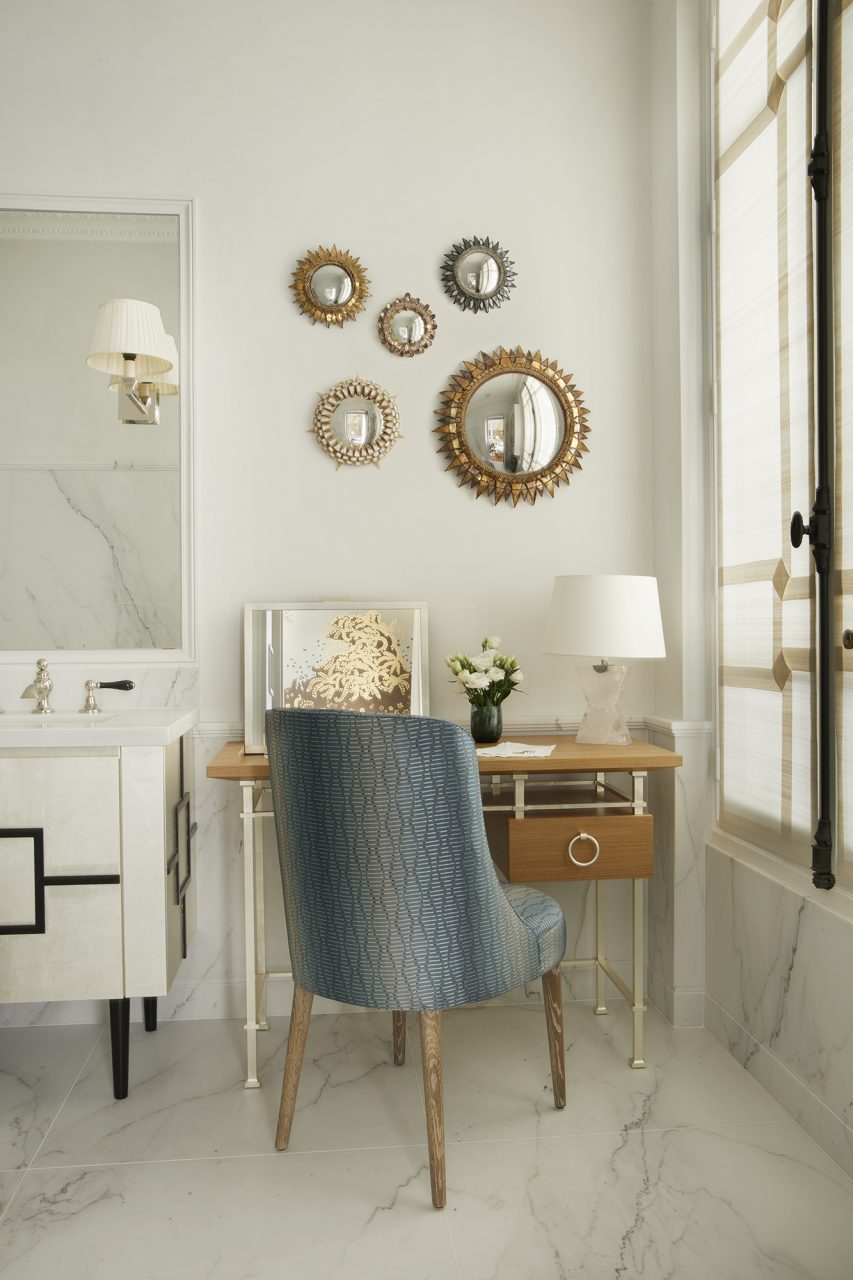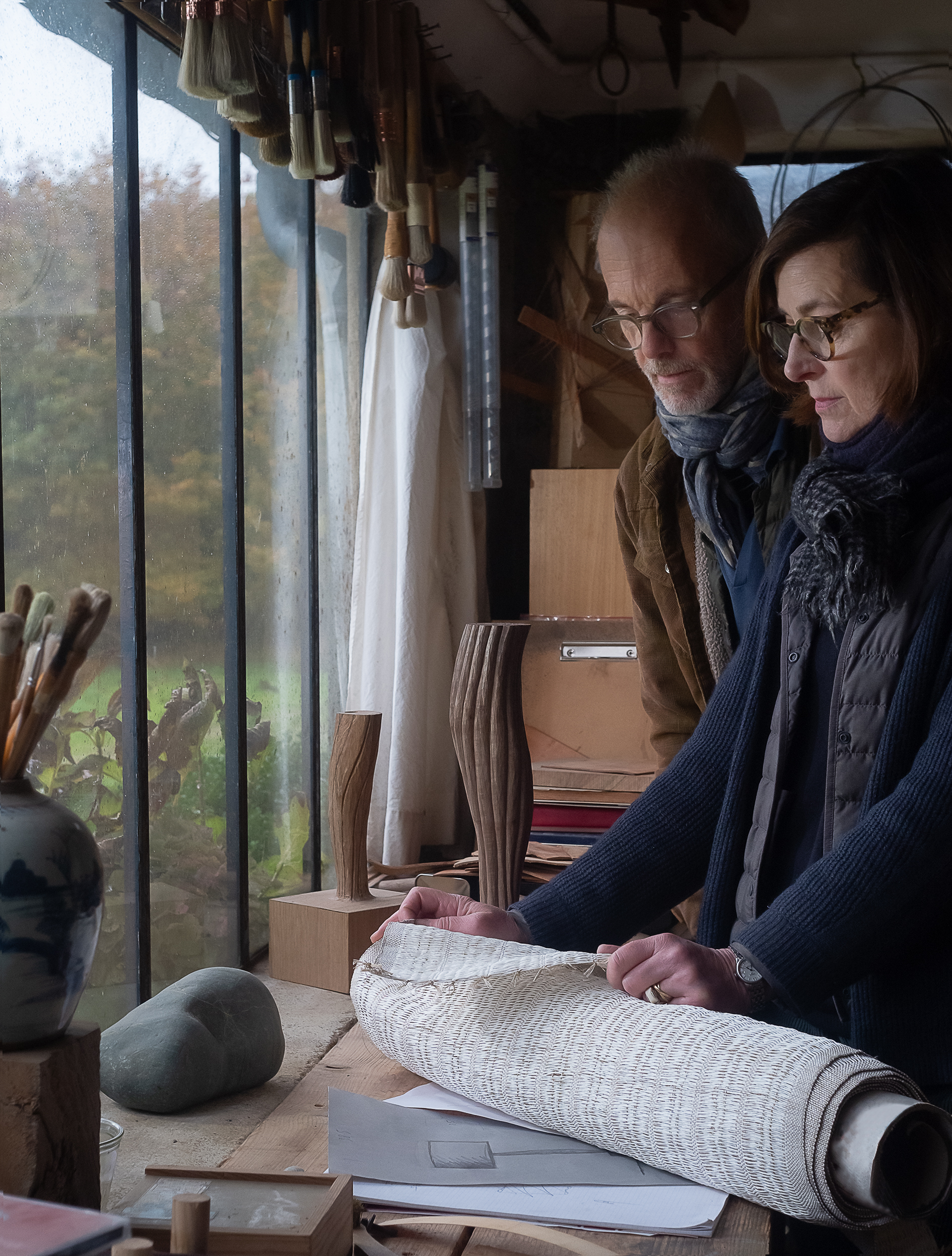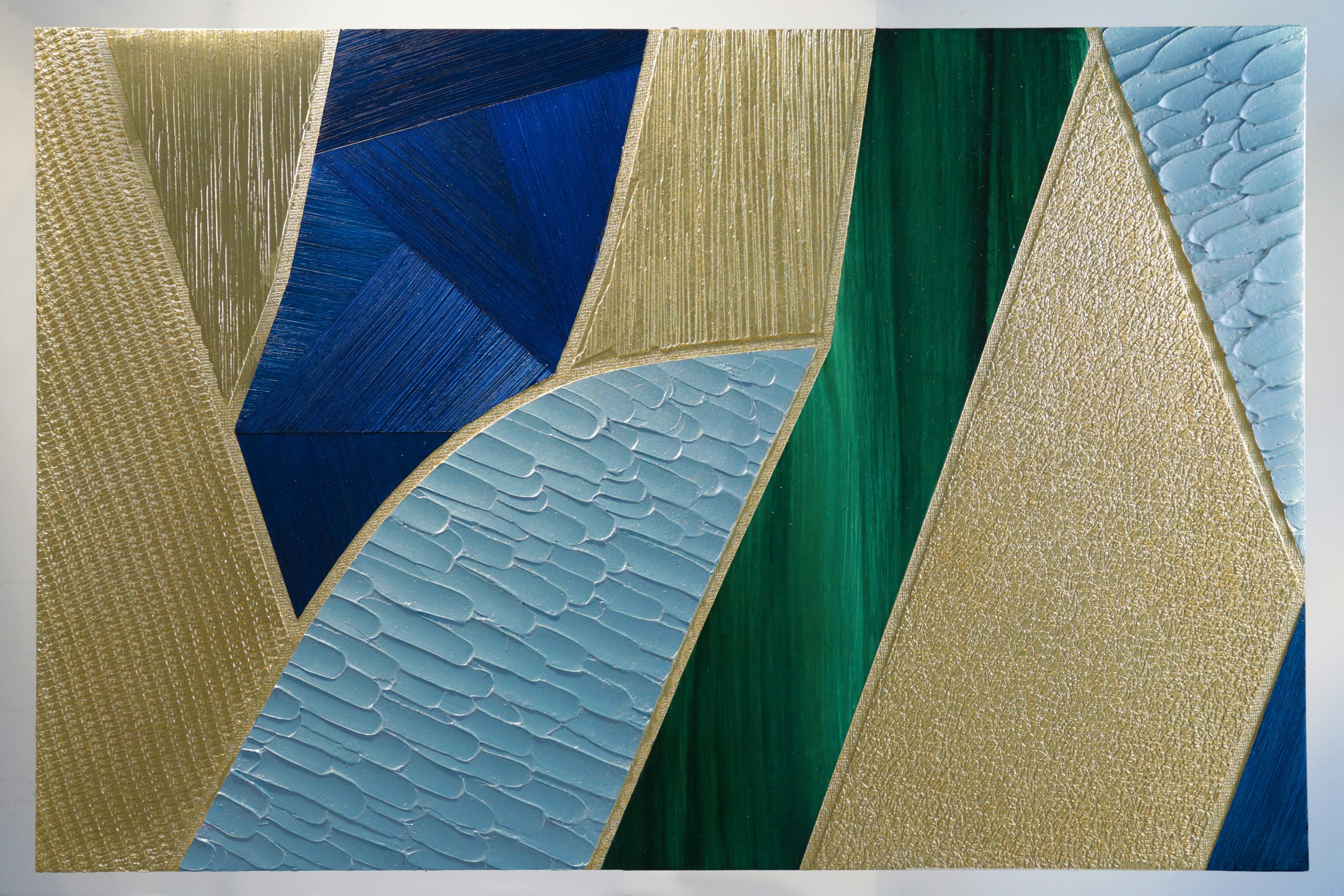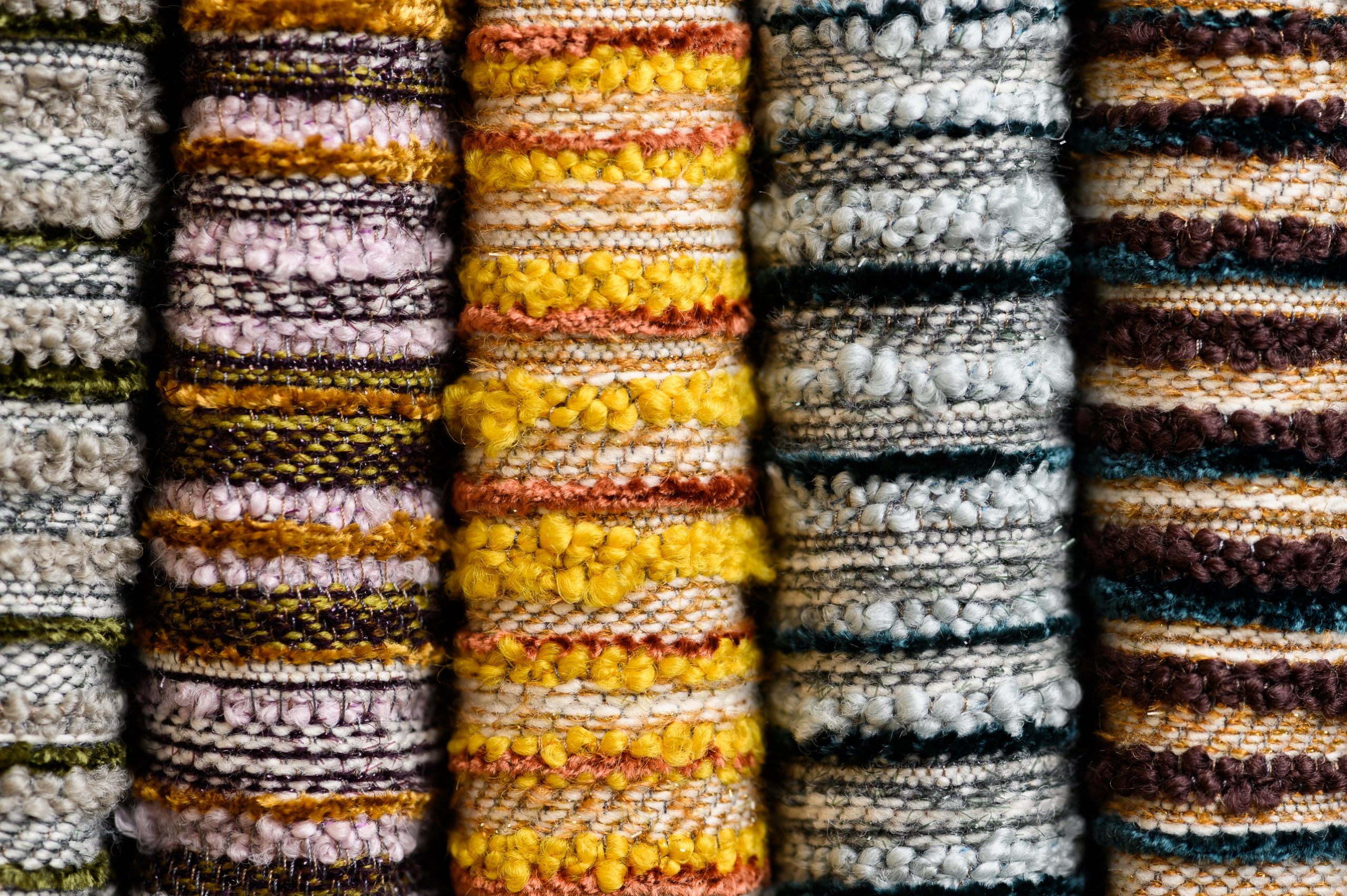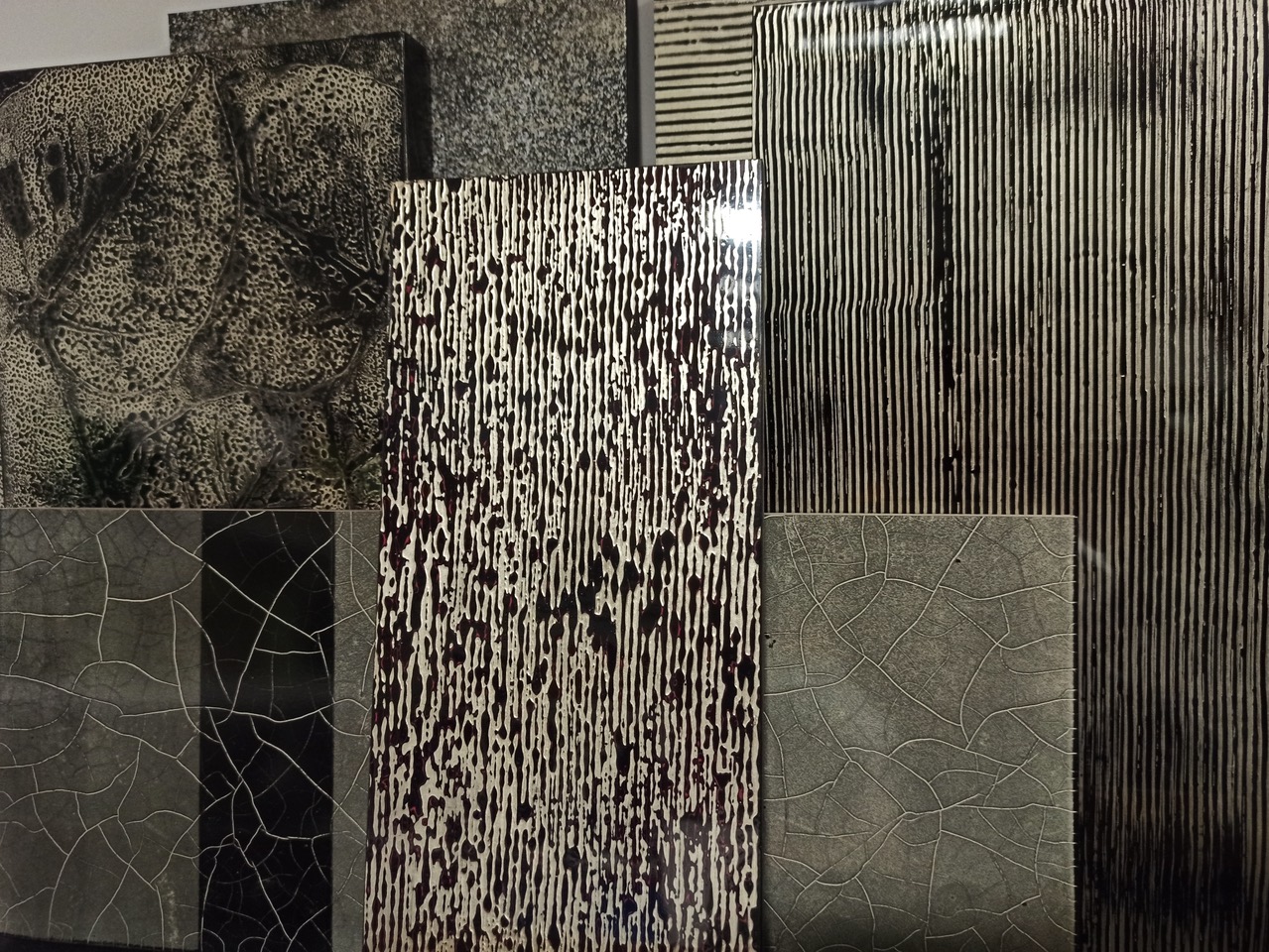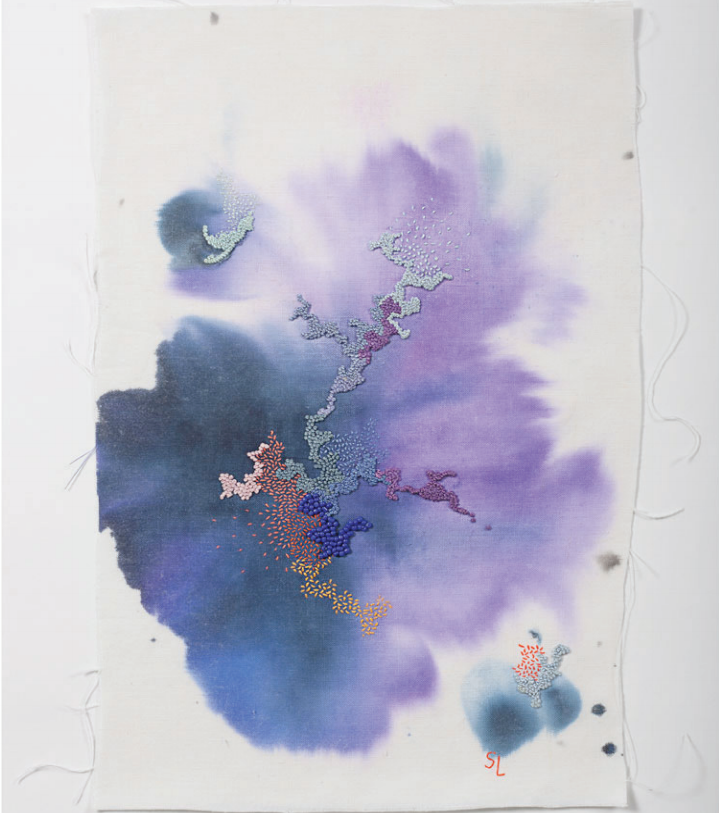Charles Jouffre has been working as an upholsterer since 1978, first with the some of best craftsmen, then with the famous decorator André Paccard and, since 1987, for his own company which he created in Lyon. Today Jouffre has, in addition to his Lyon workshops, a showroom in Paris, offices and a workshop in New York. His son Romain is now taking over the Atelier from his father.
By creating a dynamic and contemporary firm, Charles Jouffre has made it possible for a trade once perceived as “old-fashioned” and unattractive to evolve into a profession of the future.
Charles, you speak of the upholsterer’s trade with passion. What do you mean by this? Do you continue to create and invent?
I knew of this trade when I was a child. At the age of 16, I decided to do my apprenticeship. Since then, the passion for this occupation has never left me. I’ve been incredibly lucky to have had experiences that have been each more rewarding and enriching than the next. I have discovered exceptional places all over the world, met clients, collaborators and partners of great quality. I have had to take up challenges that I never would have imagined, and all this while working the same occupation. This trade has allowed me to quench my thirst for learning, to keep moving forward and to progress. I am now convinced that the upholsterer’s profession belongs to the future because of its infinite possibilities for encounters, discoveries and cultural experiences: it enables a professional life that one is passionate about!
From your time with the Compagnons du Devoir et du Tour de France (a Frenchn organization of craftsmen and artisan) to today, how would you say your profession has evolved?
From a profession perceived as a dusty, practised in backyard workshops by old men a few years ago, to a trade that attracts young, talented and passionate people, who can see their future because an expertise that has evolved, new techniques and even sustainable materials, within spacious, organised workshops, equipped with high-performance and innovative equipment.
Why did you choose Lyon to set up your workshop?
Lyon is the world capital for silk, it was therefore obvious to set up our workshop at the very centre of this historic craft (the most beautiful fabrics in Versailles were woven in Lyon in the 18th century). Moreover, Lyon is exceptionally well located: two hours from Paris, two hours from the Alps and three hours from the south of France, it also has an international airport that allows us to easily reach our international customers.
How are your workshops in Paris and New York different and important to you?
In Paris, we have a showroom that allows us to be as close as possible to our Parisian and French clients; in New York, Romain leads a team of upholsterers that we have been trained over time in what is now a vast and wonderfully equipped workshop: they have become a benchmark in creativity and innovation. It is a great satisfaction for me to see our ‘savoir-faire’ being exported in this way. Our American customers are the first to benefit and to thank us for it.
Could you describe your workshops and the profiles of the craftsmen who work there?
In Lyon like in New York, our workshops occupy a surface area of approximately 2,500 m2, now completely renovated, modern, equipped with the best equipment, air-conditioned and focused on the well-being of our employees, to whom we are extremely attached as they are the driving forces of this company. Our teams are made up of account managers, production coordinators, designers and experienced upholsterers, some of whom have been with us for more than 30 years, and others who are very young and are regularly trained by the older ones. We have several Compagnons du Devoir et du Tour de France, a Meilleur Ouvrier de France and 4 apprentices who have obtained the title of Meilleur Apprentis de France.
What are the different stages from commission to finished creation? Could you illustrate this with a recent example?
In general, it all starts with a meeting with the client, whom we ask to explain what he wants and what he hopes to get from us. This is followed by several discussions that will gradually enable us to sketch an outline of the project. Then our Design and Methods Studio works on 3D plans, sometimes even making 3D prints, allowing our clients to indorse a concept before going into production. Once the design is complete, our upholsterers step in to make curtains, headboards, sofas and armchairs. Our logistics department then takes care of packaging, deliveries and customs clearance before our upholsterers travel to the most diverse countries to install the window decorations, wall hangings or woodwork coverings.
What are your links and exchanges with interior architects?
Interior architects and designers act as prescribers and are, in a way, the conductors of a project that encompasses a large number of trades. We work with them to ensure that they are as satisfied as possible with their own clients, who become our clients over time, always under the guidance of the interior architects who continue to pamper them, often for the rest of their lives.
How and where do you choose your raw materials?
Our in-house decorator oversees the fabric selection and manages our showrooms in Paris, Lyon and New York. She is continuously carrying out new sourcing, enabling her to select the best products internationally. We are thus able to offer our customers exceptional products, sometimes unique, that they will not easily find elsewhere.
How is know-how passed on at Jouffre?
Every year, we train several apprentices in our headquarter workshops, our confection workshop and our upholstery teams. Further, we have set up support and training programmes for our most experienced employees in each of the trades practised within the company.
Romain works alongside you now. How is this transmission going?
Wonderfully well, for several reasons: I think that Romain, who has been around upholsterers throughout his childhood (we lived above the workshop), and who often helped us by working during his summer holidays in the workshops, has a passion for this profession and its world. I also realise that we share many beliefs about the future of this profession, and finally, we share the same values. We therefore are moving forward together and in the same direction. I am consequently more serene than I have ever been and feel completely ready to hand over the company to him because I trust in him, I know that he will only strengthen the work accomplished up to now for the benefit of the company and the men and women who make it up.
Romain, what would you say about this transmission?
I think this transmission is going superbly well! My father gives me a lot of freedom. I’ve been in New York for 7 years and I can count on his unfailing support when I want it. If I don’t need him, he leaves me be and trusts me completely. We never step on each other’s toes, we are each committed to our own subjects and we communicate with great transparency. When something is not right, we discuss it and don’t let frustration or negative feelings build up. I think that’s the key to getting things right. I really enjoy learning from him and have immense respect for what he has built. It is a wonderful challenge to protect his legacy and go on building on the very solid foundations he has fostered with our teams.
You are the director of the US subsidiary. Do you participate in any way in the creation?
I try to! For example, I designed a chair for our Long Island City workshop. We called it Rome… not very original but I’m very proud of it because it’s a great success and many customers who see it ask us for a quote! I also participate by giving my opinion when a customer or a colleague asks me, and I try to invest myself in the creation of the samples that we develop. This includes the choice of fabrics, rods, finishes, trimmings, etc.
What gave you the desire to follow your fathers steps? Is it a family passion?
First, it was the opportunity. In 2014, the company needed someone in New York following the return to France of our colleague Julien, who is now in charge of the Research Office. Charles asked me if I knew anyone who could take on the challenge. The timing was right, and I offered him my application! It was a very natural progression. I literally fell in love with this job and this world, I gained confidence and got good results in the United States. My relationship with Charles was excellent, and I progressively realised that what I wanted to do was to continue and gradually take over the management of the company, hand in hand with our teams.
What and how do you innovate?
We innovate mainly under the impulse of our customers. They are creative and push us to the limits of our craftsmanship. In order to realise their creative visions, we are forced to reinvent ourselves constantly, and that’s wonderful. This of course requires energy, but it is what drives all of our craftsmen and our teams, as indicated in the company mission, developed over the course a long cross company discussion: ” Accompanying creative minds using our mastery of the craft and our capacity for innovation.”
We therefore innovate by always being on the lookout for new materials, new techniques and development methods. Our Design & Method Studio is made up of 6 people in total between France and the USA. This is unique for an upholsterer. They design all the pieces we make and work hand in hand with architects and interior designers. Therefore we are the only ones in the world who can make a perfectly round cushion without any extra thickness, and why the greatest interior designers in the world call on us when they have a five-legged sheep to make!
How do you see Jouffre developing in the future?
For me, the challenges are primarily human. Today, we have a prime position in our home market. We are leaders in Europe and not far from being leaders in the USA. What I want to do now, above all, is to strengthen this position and to be even more efficient in order to finance the goals that are important to us: to pay our teams better and especially the craftsmen, to train young people internally and to allow our the people in our teams to have successful careers with us or externally because they will have been challenged, trained and supported by us. Our performance must also enable us to finance our ambitions in terms of sustainable development. I would be the happiest man alive if, in 10 years’ time, 98% of our employees said they were happy to work for Jouffre because of their responsibilities, their remuneration, their autonomy, the company’s CSR policy and, of course, the quality and beauty of the projects they carry out.
